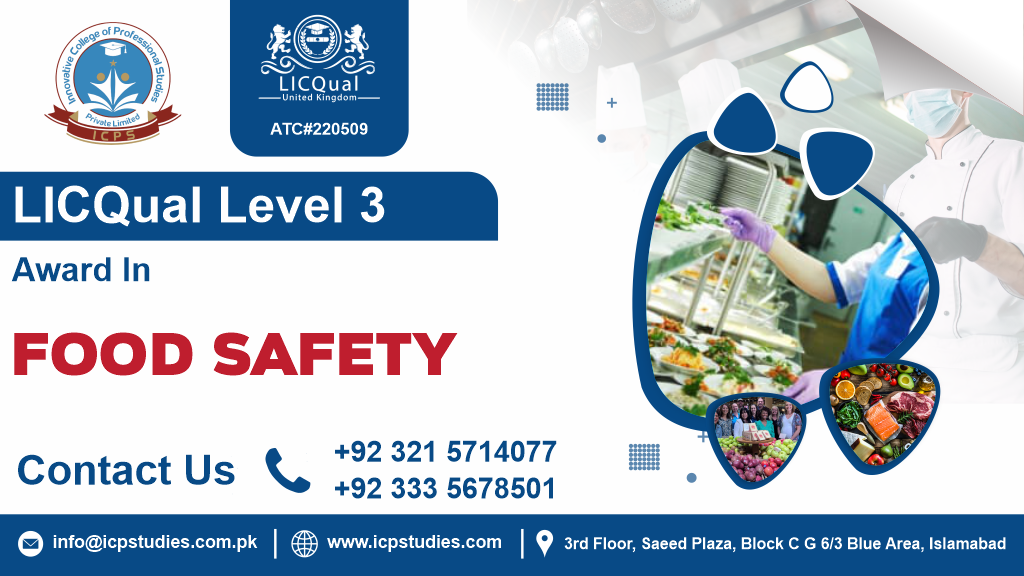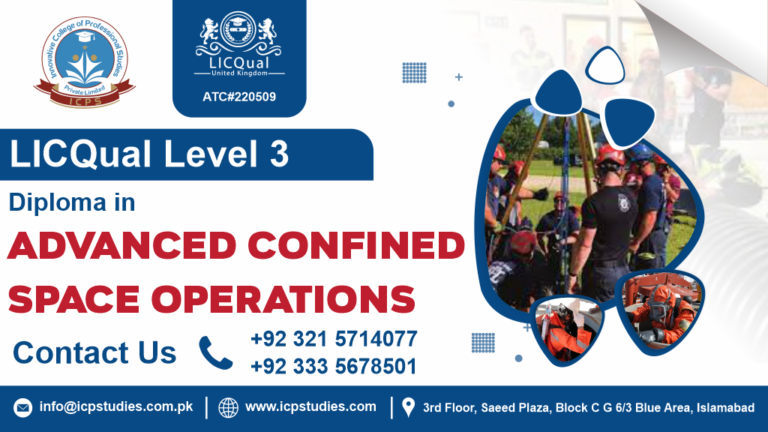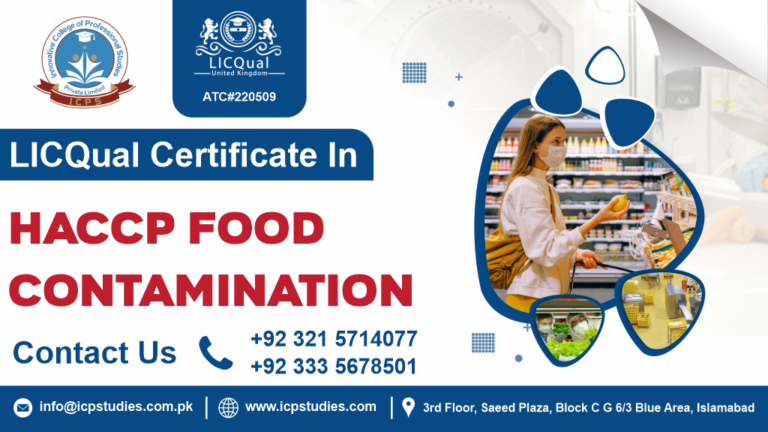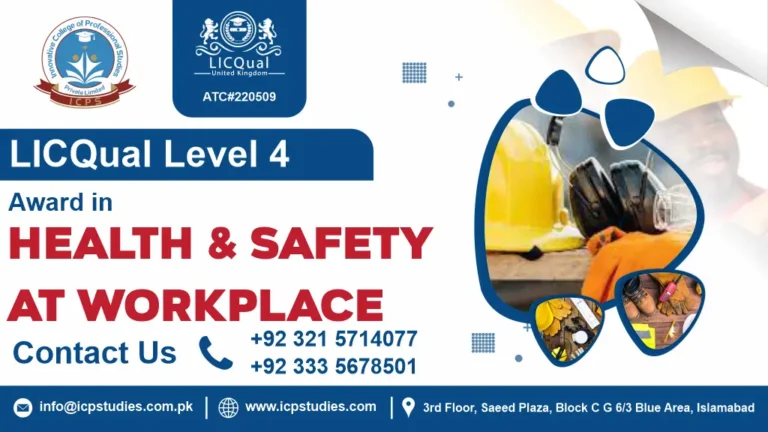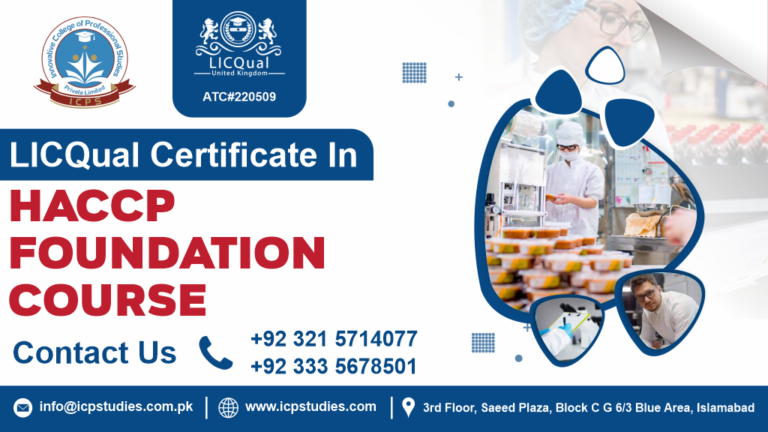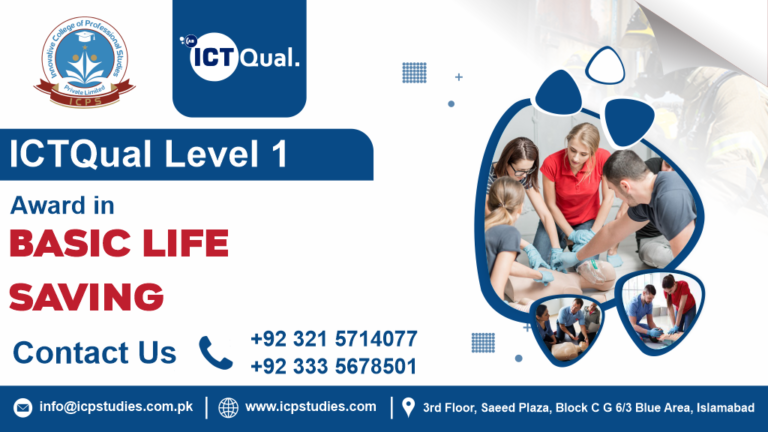Food safety is a paramount concern in every aspect of the food industry, from production to consumption. Ensuring that food is safe for consumption is not only a legal requirement but also crucial for protecting public health and maintaining consumer trust. The Level 3 Award in Food Safety is a comprehensive qualification designed to equip individuals with the knowledge and skills necessary to ensure food safety in various food-related settings.
Food safety is essential for preventing foodborne illnesses and ensuring that food products are safe for consumption. Contaminated food can cause a range of illnesses, from mild gastrointestinal discomfort to severe and sometimes life-threatening conditions. In addition to the human cost, foodborne illnesses can also have significant economic consequences for businesses, including loss of revenue, damage to reputation, and legal liabilities.
The Level 3 Award in Food Safety is a valuable qualification for anyone involved in the food industry who wants to ensure the safety and quality of food products. By obtaining this qualification, individuals can gain the knowledge and skills needed to maintain food safety standards, comply with regulations, and protect public health. Whether you’re a food business owner, supervisor, manager, or employee, investing in food safety training is essential for the success and sustainability of your business. Enroll in the Level 3 Award in Food Safety today and take the first step towards mastering food safety practices in your workplace.
All About Level 3 Award in Food Safety
Course Overview
The Level 3 Award in Food Safety is an advanced qualification designed for individuals who hold, or aspire to hold, supervisory and managerial roles in the food industry. This certification provides in-depth knowledge and understanding of food safety principles, ensuring that those in charge can effectively manage and uphold high standards of food safety within their establishments.
The course is typically delivered through a mix of classroom-based learning and practical assessments. It usually takes about three to five days to complete, with flexible learning options available, including online and part-time study. Assessment methods often include multiple-choice exams or written tests, along with practical evaluations.
Study Units
- Food Safety Legislation and Regulations
- Microbiological Hazards and Control Measures
- Food Poisoning and Foodborne Illnesses
- Physical and Chemical Hazards in Food
- Allergen Management and Control
- HACCP Principles and Implementation
- Personal Hygiene and Training
- Food Safety Management Systems
Admission Criteria
Food Safety Legislation and Regulations
- Understand the key legislation and regulations governing food safety.
- Identify the roles and responsibilities of regulatory authorities in enforcing food safety standards.
- Demonstrate compliance with relevant laws and regulations in food handling and preparation.
2. Microbiological Hazards and Control Measures
- Explain the sources and characteristics of microbiological hazards in food.
- Identify common foodborne pathogens and their associated illnesses.
- Implement control measures to prevent microbiological contamination and proliferation in food.
3. Food Poisoning and Foodborne Illnesses
- Describe the symptoms, causes, and transmission routes of food poisoning and foodborne illnesses.
- Recognize the signs of foodborne illnesses and respond appropriately to suspected cases.
- Implement preventive measures to reduce the risk of foodborne illnesses in food handling environments.
4. Physical and Chemical Hazards in Food
- Identify common physical hazards such as foreign objects and their sources in food.
- Recognize chemical hazards, including toxins and contaminants, and their effects on food safety.
- Implement measures to prevent physical and chemical hazards from contaminating food.
5. Allergen Management and Control
- Understand the importance of allergen management in food safety.
- Identify common food allergens and their sources.
- Implement procedures to prevent cross-contact and allergen contamination in food handling and preparation.
6. HACCP Principles and Implementation
- Understand the principles and benefits of Hazard Analysis and Critical Control Points (HACCP).
- Identify and analyze food safety hazards at critical control points in food processes.
- Develop and implement HACCP-based food safety management systems to control hazards effectively.
7. Personal Hygiene and Training
- Demonstrate good personal hygiene practices, including handwashing and personal grooming.
- Understand the importance of employee training in maintaining food safety standards.
- Provide training to food handlers on personal hygiene practices and their role in food safety.
8. Food Safety Management Systems
- Understand different food safety management systems, such as ISO 22000 and BRCGS.
- Implement and maintain effective food safety management systems in food businesses.
- Monitor and evaluate food safety performance to ensure continuous improvement and compliance with standards.
Ideal Candidat
The entry requirements for the Level 3 Award in Food Safety are typically straightforward, ensuring that participants have a foundational understanding of food safety principles and the ability to engage with the course material effectively. While specific requirements may vary depending on the training provider, the general entry requirements for this course often include:
- Basic Literacy and Numeracy Skills: Candidates should have basic reading and writing skills to understand course materials and complete written assessments. Numeracy skills may be necessary for interpreting numerical data related to food safety practices.
- Minimum Age Requirement: Participants are usually required to be at least 16 years old to enroll in the course. This ensures that individuals have reached a level of maturity necessary to comprehend complex food safety concepts and adhere to safety protocols.
- Previous Experience or Qualifications: While not always mandatory, some training providers may prefer candidates with prior experience or qualifications in food safety or a related field. This could include completion of a Level 2 Award in Food Safety or relevant work experience in the food industry.
- Health and Fitness: Candidates should be in good health and physically capable of participating in the practical components of the course. While no specific medical examinations are typically required, individuals may be asked to confirm their fitness to undertake the training.
- Language Proficiency: As the course materials and assessments are usually conducted in the language of the training provider (often English), candidates should have a sufficient level of proficiency in the language to understand instructions, participate in discussions, and complete written assessments.
- Commitment to Learning: Participants should demonstrate a willingness to learn and engage actively with the course content. This includes attending all scheduled classes, participating in practical exercises, and completing assigned coursework or assessments.
- Compliance with Legal Requirements: Candidates may be required to provide proof of identity and residency in compliance with legal and regulatory requirements, particularly if the course includes assessment leading to a formal qualification.
It’s essential for prospective participants to review the specific entry requirements outlined by their chosen training provider before enrolling in the Level 3 Award in Food Safety course. By ensuring that they meet these requirements, individuals can maximize their chances of success and derive the greatest benefit from the training.
Learning Outcomes
The Level 3 Award in Food Safety is suitable for a diverse range of individuals involved in the food industry, particularly those in supervisory or management roles. This course is beneficial for:
- Food Supervisors and Managers: Individuals responsible for overseeing food safety practices and managing food production, handling, and storage.
- Food Business Owners: Entrepreneurs and proprietors of food establishments such as restaurants, cafes, catering companies, and food retail outlets.
- Food Safety Officers and Inspectors: Professionals working in regulatory agencies or local authorities responsible for enforcing food safety regulations and standards.
- Quality Assurance Managers: Personnel responsible for implementing and monitoring quality control measures in food production facilities.
- Hospitality Professionals: Those working in hotels, resorts, and hospitality management roles where food safety and hygiene are paramount.
- Catering Managers: Individuals overseeing food service operations in settings such as schools, hospitals, prisons, and corporate cafeterias.
- Food Production and Manufacturing Personnel: Workers involved in food processing, manufacturing, and packaging who require advanced knowledge of food safety practices.
- Healthcare Professionals: Healthcare workers involved in food service, such as dietary managers and nutritionists, who need to ensure patient safety through proper food handling and preparation.
- Educators and Trainers: Professionals involved in food safety training and education, including instructors at culinary schools, vocational training centers, and workforce development programs.
- Individuals Seeking Career Advancement: Individuals looking to enhance their qualifications and career prospects in the food industry by demonstrating expertise in food safety management.
- Those Aspiring to Start a Food Business: Entrepreneurs planning to establish food-related ventures who need a thorough understanding of food safety regulations and best practices.
Overall, the Level 3 Award in Food Safety caters to individuals at various stages of their careers within the food industry, providing them with the knowledge and skills necessary to ensure food safety and compliance with regulations.
FAQs about Level 3 Award in Food Safety

